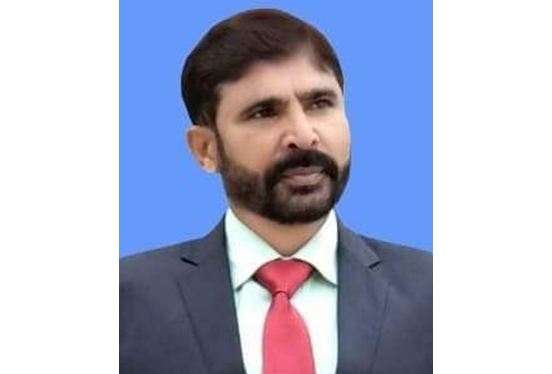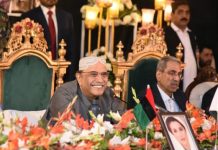Dr. Muhammad Akram Zaheer
Pakistan’s soaring political tension is an opportunistic struggle for power. It has pushed the country in a political tinderbox. Not any regard is displayed on either side for the ongoing suffering of ordinary Pakistanis, who continue to pay the price for the country’s long history of political instability.
Today’s deadlock between Pakistan’s federal government and the opposition Pakistan Tehreek-e-Insaf (PTI) over the conduct of elections is continuing. The PTI has held a big meeting at the famous Minar-e-Pakistan Tower grounds in Lahore as the opening of election campaign. Addressing to a large gathering of supporters, party workers and former parliament members,Former Prime Minister Imran Khan has announced a program to save Pakistan’s failing economy. A series of events haspersisted nearly a year in his quest to return to the Prime minister office. Khan’s campaign is enjoying widespread popular support and has succeeded in mobilizing the public, which is building pressure on the ruling coalition led by Prime Minister Shahbaz Sharif who is not agree for early elections. The coalition government, however, is determined to hold off polling as long as possible for provincial and national assembly elections. To justify the delay, the embattled government has referred to the country’s unpreparedness for the elections because of security threats from the Tehreek-e-Taliban Pakistan (TTP) militant group in the coming months. It has justified the possibility of terrorist attacks against officials and innocent civilian population. But behind this argument lies what has been a unfamiliar constitutional dilemma for Pakistan. There is a question, in which circumstances and by whose authority should national security concerns take precedence over constitutional obligations and the rule of law?
Confrontational views intensified when the Electoral Commission of Pakistan, claiming its inability to hold fair and just elections in light of the security situation and financial problems, mandated late April to early October and ignored the constitution by postponing the given provincial elections. This came after the army announced its failure to provide security for the polls due to continued engagement in counter-terrorism operations. Khan, who is currently dealing with multiple government-initiated charges for alleged criminal behavior, has sought the intervention of Pakistan’s Supreme Courts. In the recent moves of the PTI leader stated that the Election Commission and the Sharif government are engaging to break the constitution. To pushing back the government, PTI went to the Supreme Court to get legal support. Through a suo motu notice the Chief Justice of the Supreme Court of Pakistan suspended the Election Commission and government’s extra-constitutional measures.
Now, what did the Supreme Court Chief Justice Umar Atta Bandial play his role to break the political deadlock in Pakistan is whether acceptable for all stake holders? Against a backdrop of such questions about the rapprochement and impartiality of the judiciary among bar associations and senior judges, the chief justice has emerged as a central character in the political drama but many believe that the verdict of the Chief Justice is controversial. Khan has become a victorious in the Supreme Court; however, there is a possibility that the government and the security establishment will play a significant role in the game of Pakistani politics, whether or not they choose to implement their decision.
For the first time in Pakistan’s history, the ruling coalition government appeared to be trying to implement the country’s infamous “ideological necessity” without formally announcing it or seeking the approval of the Supreme Court. In response to the question of who has the authority to make extraordinary changes in the timing of general elections in Pakistan, in the past, there is not any precedent, it is the military establishment and the political elite are responsible that will determine when the situation is constitutional and we have to follow the constitution or to set aside.












